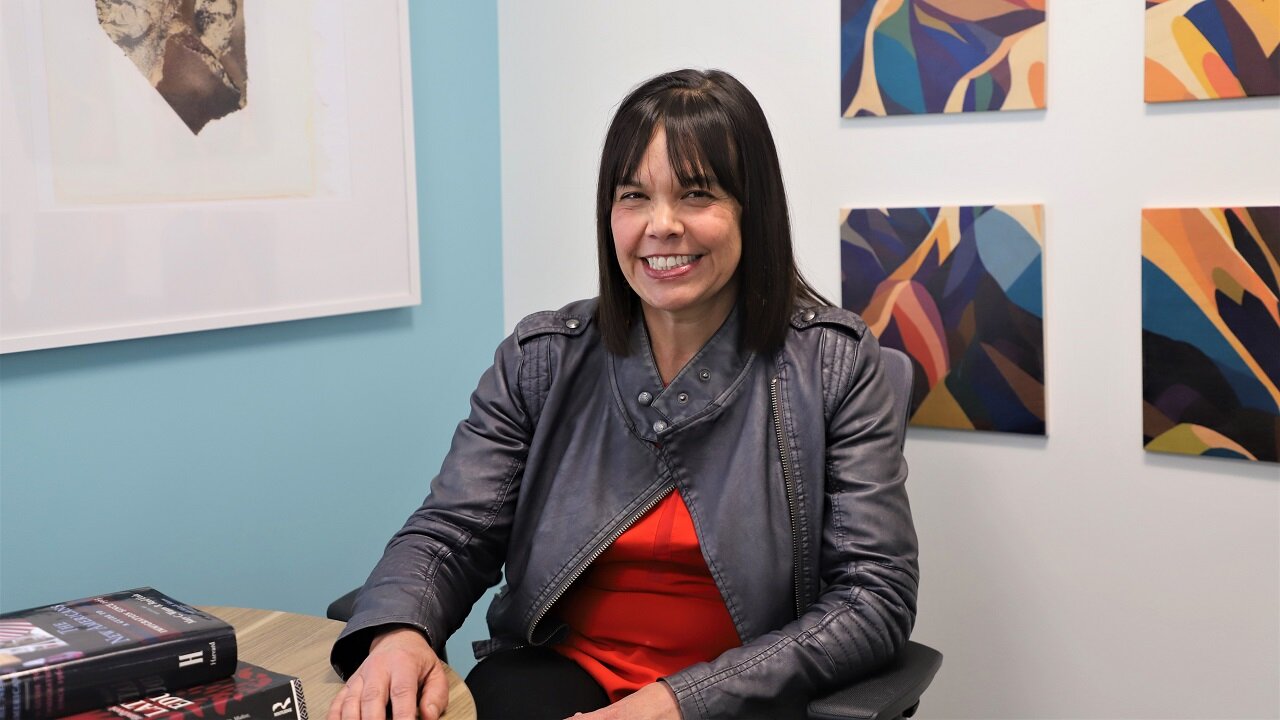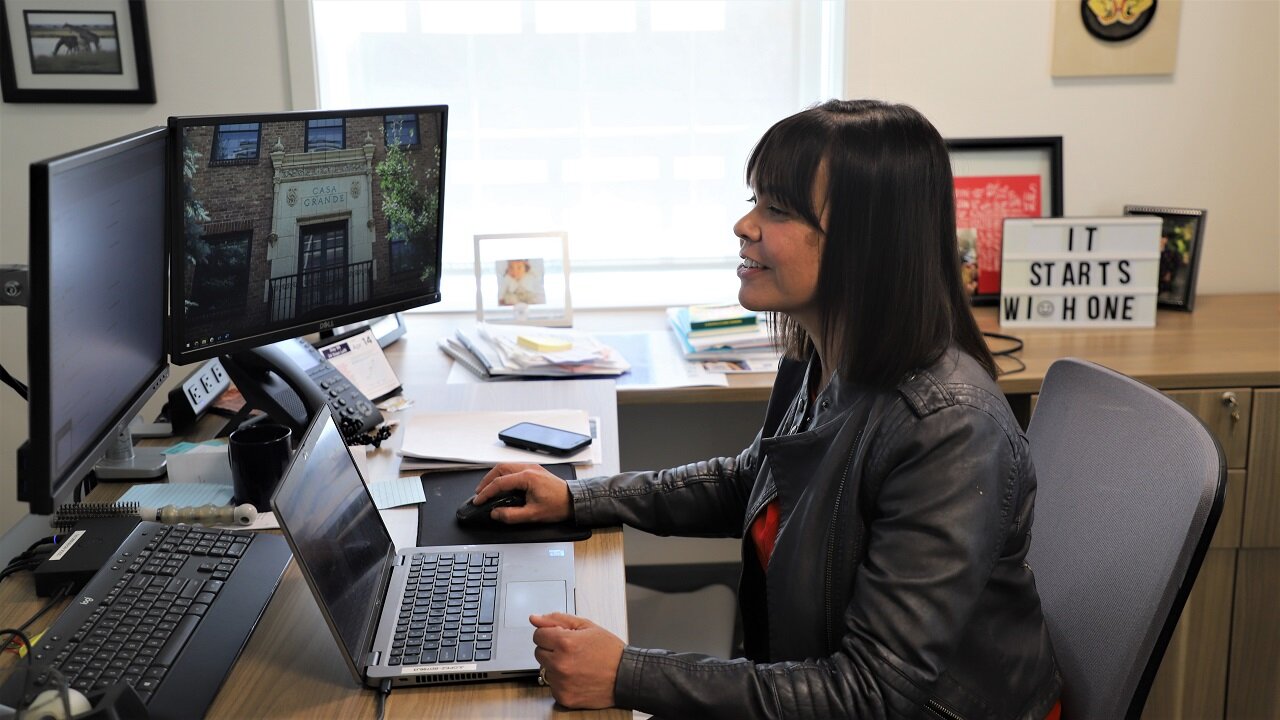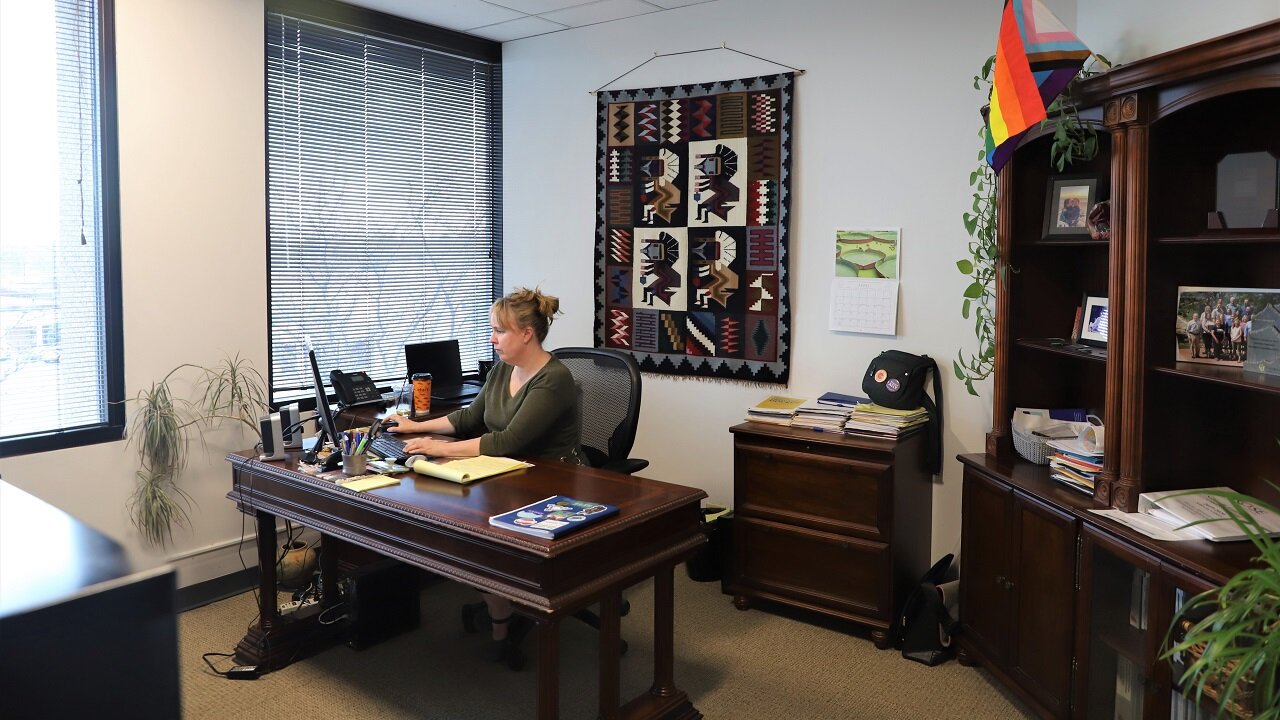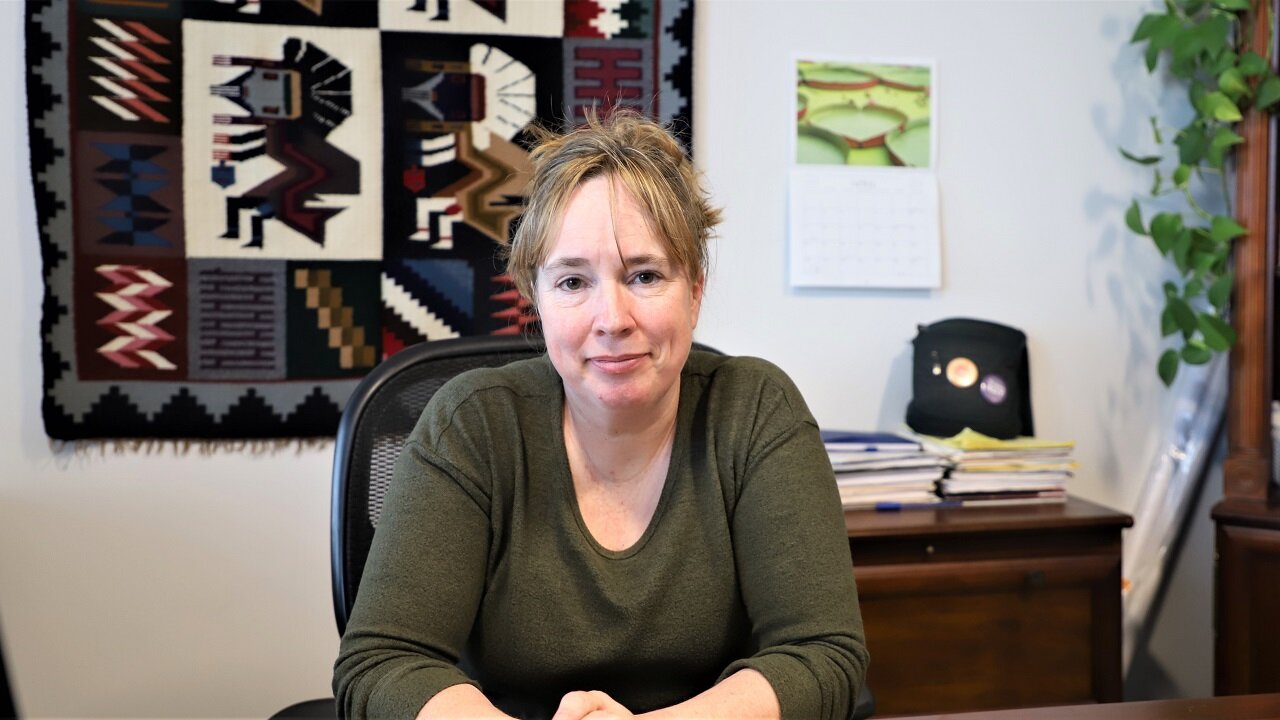Denver Immigrant Legal Services Fund receives more funding, but needs still aren't being met

DENVER — Inside immigration court throughout Colorado, two-thirds of people who stand in front of a judge to defend their civil case are doing so alone — no lawyer by their side to help them navigate the complicated American legal system.
“That includes three-year-olds that can be forced to be in front of an immigration judge, in an immigration court setting with an adversarial attorney who's representing Immigration and Customs Enforcement (ICE) on the other side,” explained Mekela Goehring, the executive director of Rocky Mountain Immigrant Advocacy Network (RMIAN).
RMIAN is one of many organizations that provides free legal services to immigrants. The organization takes on as many immigration cases as it can. That work is boosted in part by the Denver Immigrant Legal Services Fund, which recently received an increase in funding by the City of Denver.
“Denver should be so proud to have something like this. It really is a leader in the space,” said Goehring.
At the April 3 meeting, city council approved an additional $250,000 to the fund for the next fiscal year, which would increase the total to $2.3 million. The fund has existed since 2017, when Mayor Michael Hancock signed an executive order to provide a legal representative to Denverites who were in the middle of removal proceedings or threatened with such action.
“There was a lot of anti-immigrant sentiment, and so at the time, Mayor Hancock wanted to really be able to stand up and sort of share that Denver was a welcoming city, that it was a city that welcomed and loved immigrants,” explained Janet Lopez, who is the senior director of policy, partnerships and learning with Denver Foundation, which hosts this fund. Lopez has personally been involved with the fund in other capacities since its inception.


“Our constitution really said people deserve representation in our legal system as just a basic foundational opportunity that immigrants in the city of Denver should have,” said Lopez.
She and Goehring said the first few years of the fund were specifically geared toward helping people who were in removal proceedings in the immigration courts and/or detained by ICE in the Aurora GEO Detention Center. During the Trump administration, Goehring added, they witnessed more internal immigration enforcement, meaning people were arrested at their jobs, homes, etc. and forced to fight their cases from the detention center.
“When people are in detention, their chances of success are exponentially lowered for all the reasons that anyone can imagine, right? You're separated from your family and loved ones, you don't have access to any of the paperwork or the support that you need,” explained Goehring. She said that’s where RMIAN stepped in where they could offer legal services.
Studies have shown folks going through immigration court with a lawyer are more than 10 times more likely to win their cases than without one. In this specific example of the Denver Immigrant Legal Services Fund, out of the 2,650 or more people helped by it, only a few have lost their case.
“A former immigration judge described immigration court hearings … as the death penalty or capital cases and traffic court. And that's often what we see it as,” lamented Goehring. “It's an incredibly unjust system where people are railroaded and really streamlined through proceedings, where there's no access to counsel and they're having to navigate this incredibly complex immigration legal system, which is just insurmountable.”
As the federal immigration climate and policies have shifted over the last few years, the fund’s focus has changed slightly as well. The Denver Foundation said city council wanted to build more capacity of the nonprofits like RMIAN that staff lawyers who are doing the work and RMIAN said they’ve seen a shift in more work with their children’s program.
Without a lawyer provided, community members who find themselves in immigration court either have to navigate the system themselves or look at hiring their own attorney which can easily cost — according to Goehring — upwards of $10,000. However, that number could fluctuate in many different ways given the wide variety of types of cases and the typically lengthy time all these court proceedings take.
“I think what all of these funds have done is say, ‘This is a grossly unfair and unmet need,’ said Goehring, “That everyone who's going through immigration proceedings deserves to have an attorney by their side to represent their best interests, regardless of what the outcome of the case can be.”
The Future
The current unmet needs aren’t the only questions for immigrant advocates in Denver. Another big one is what other support will come for the more than 6,500 migrants who have arrived in the city since December.
“I think the city has stepped up in an incredible way in terms of shelter and trying to house people and help, in some cases, help them get on buses and head to other places, but a lot of them at this point are remaining in the city, and it's a big lift,” said Lopez.
She wonders what the legal fate will be for many of those folks who are contributing to the city and have found a home and family here in the city when the current legal fund can’t meet the need prior to this influx. Lopez hopes the final two mayoral candidates for Denver — Mike Johnston and Kelly Brough — will make this a top priority of their campaigns and reach out to The Denver Foundation and the other supporting organizations to figure out the needs and the impacts that can be made.
“The reason that we continue to host it and continue to do outreach and ask our donors to contribute and other foundations to contribute, is that we see the difference it makes in the individual lives,” explained Lopez.


Just like Lopez, asking anyone in a nonprofit space why they continue to do the tough work they do usually comes with a smile and speaking of the overwhelming positive feelings they get when their goals become reality. That is exactly the case for Goehring.
Speaking about standing in the room watching a client RMIAN helped receive their U.S. citizenship at a naturalization ceremony filled her with joy and brought a smile to her face.
“Just the incredible contributions of immigrants that we should be celebrating. And so getting to be a small part of people's journeys on that path, too, is definitely what keeps me going,” said Goehring.
It’s an image that can bring many smiles — a room filled with happy people from all over the world, who have finally been able to make the official step to become a citizen often after years of work and effort — but for Goehring it’s also an image that’s missing something.
“Almost like the silhouettes of people that should be there but who are not there because they didn't get access to counsel, because the government decided to detain them, because there wasn't a mechanism through federal immigration law for them to stay here with their families. And just the power of that, too,” she explained of her vision.
For RMIAN and for the other organizations who work with the immigrant community in Colorado and with this fund specifically, many will say the problem isn’t lack of need but lack of capacity. All going back to the need for a fund like this in the first place, there is hope on the horizon.
Just this week on the federal level, several representatives and senators introduced a bill called the “Fairness to Freedom Act.” It would provide the right to legal counsel to immigrants, at government expense, for those who cannot afford one just as it does in criminal cases for citizens of the United States.
“The irony is many times the consequences that people are facing because of an immigration court case, because of a removal case, are far more grave, are far more serious than what they may face in a criminal legal system,” said Goehring.
While many lawmakers have co-signed this bill — although none from Colorado — the chances of this dramatic change passing may be slim. Still for Goehring, this would be the magic wand to fix the hole in the dam that is currently patched by the Denver Immigrant Legal Services Fund.
There are other funds similar to the one in Denver, including a statewide immigrant legal fund that was passed in 2021, and that fact does give Goehring hope.
“I think about it in a lot of ways like the way that marriage equality came about in this country too…it started at a local level. It got started at the local and state level until there was a groundswell of support to say, ‘This is who we are as a country,’” Goehring explained.
Amanda Horvath is the managing producer with Rocky Mountain PBS. You can email her at amandahorvath@rmpbs.org.